Composer Mauricio Kagel
guardian.co.uk, Friday 19
September 2008 13.53 BST (Images added for this
website presentation)
An artist's originality depends less on ingenious invention than a strongly personal point of view. Mauricio Kagel, who has died aged 76, held a unique position in music of the last half century.
While widely celebrated elsewhere, in Britain he remained perhaps the least well known of the great post-second world war avant garde composers. Only Luigi Nono was comparably under-exposed; Karlheinz Stockhausen, Pierre Boulez, Luciano Berio, György Ligeti and Iannis Xenakis all, to some extent, reached a wider public.
Kagel's originality reflects his status as an outsider. Born in Buenos Aires, he came from an Argentine-Jewish family of leftist political views. He did not study music at university or conservatory, but privately with several teachers - none for composition, incidentally - and he studied philosophy and literature at the University of Buenos Aires, where the poet and short-story-writer Jorge Luis Borges was one of his lecturers. Kagel became a repetiteur at the famous Teatro Colón in Buenos Aires, and music adviser at the university, as well as being editor of cinema and photography for the journal Nueva Visión.
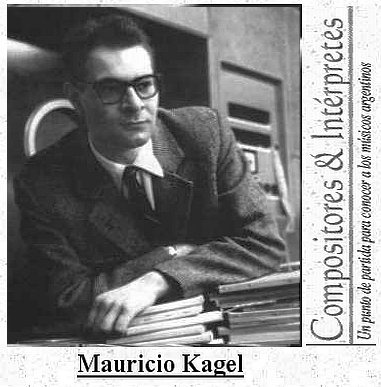 Film remained a practical interest after
Kagel moved to Cologne in 1957 on a West German government scholarship.
He lived there for the rest of his life, with frequent trips abroad as
a guest professor or artist-in-residence.
Film remained a practical interest after
Kagel moved to Cologne in 1957 on a West German government scholarship.
He lived there for the rest of his life, with frequent trips abroad as
a guest professor or artist-in-residence.
By the mid-1950s Cologne was one of the great centres of avant garde musical experiment, where Stockhausen was king, but Kagel came to succeed, or replace, him as a magnet for aspiring composers at the Hochschule, and instituted a new course in music theatre.
Although Kagel had no formal education in composition, he acquired a mastery of new vocal and instrumental techniques with surprising speed. Anagrama, a large-scale piece for solo singers, speaking chorus and instrumental ensemble, was written only one year after Kagel's arrival in Cologne and remains one of the most striking and inventive pieces of its time; it may even have had an influence on Stockhausen's Momente and Berio's Laborintus II.
In spite of its innovative vocal sounds, Anagrama is "pure" music, and Kagel continued to compose - with increasing frequency - pure music throughout his life. But his whole output, which includes film as well as various forms of "music theatre" (a combination of scenic action and music) or "instrumental theatre" (where musicians take on the role of actors as they play), is, in essence, concerned with comic reflections on the decay of tradition. Irony and cinematic techniques in music had been used by Satie and Debussy long before Kagel was born, but despite the example of Dada, no composer has so systematically explored the absurd aspects, not just of classical music, but of the whole culture industry.
There is hardly an aspect of contemporary culture that Kagel has not playfully pulled to bits and reassembled like a Heath-Robinson contraption: "early music" was desiccated in Musik für Renaissance-Instrumente (1966), opera and ballet turned inside-out in Staathstheater (1970), Country Music and Nostalgia affectionately travestied in Kantrimiusik (1975), colonialism (characteristically reversed as non-Europeans invading the Mediterranean) lampooned in Mare Nostrum (1975; revised in 1997), the circus celebrated in Variété (1977) and totalitarianism caricatured in Der Tribun (1979) - a harangue which is perhaps too much like the real thing. More recently, The Pieces of the Compass Rose (1988-94) reflect the paradoxes of "world music" with amiable nonchalance.
There have also been tributes-with-a-difference to other composers: the film Ludwig Van celebrated the bicentenary of Beethoven's birth in 1970 with a burlesque representation of the kitsch cultural tourist industry in which, effectively, Beethoven became a mere consumer product. In Variationen ohne Fuge (1972), Brahms and Handel once more join battle, as they had, very differently, in Brahms's Variations and Fugue on a Theme of Handel. Stravinsky is grist to Kagel's mill in Fürst Igor (1982), and Debussy in Interview Avec D (1994), in both of which Kagel re-creates, in ghostly form, music of the past, bearing a relation to it much like Miss Havisham to her wedding day.
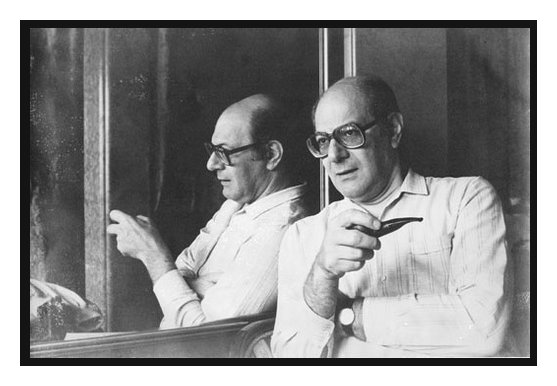 For the
tercentenary of JS Bach's birth in 1985, Kagel composed his Sankt-Bach
Passion - a perfectly respectful re-enactment of Bach's own life in the
manner of one of Bach's Gospel settings. Kagel characteristically
quipped, "No one believes in God any more, but everyone believes in
Bach," a half-truth, as he would surely have admitted.
For the
tercentenary of JS Bach's birth in 1985, Kagel composed his Sankt-Bach
Passion - a perfectly respectful re-enactment of Bach's own life in the
manner of one of Bach's Gospel settings. Kagel characteristically
quipped, "No one believes in God any more, but everyone believes in
Bach," a half-truth, as he would surely have admitted.
If this suggests something like "postmodernism", the term had not been invented until long after Kagel had established his particular brand of cultural criticism. But with 1978, which he wrote for the 75th anniversary of the leading German recording company, Deutsche Grammophon, Kagel's music took a new turning in which he seemed to kick over the traces of the postwar avant-garde. The music had regular (ish) rhythms and a certain sense of key centre, or tonality (of a sort). The deliberately gruff and dirty sound, the chug-chug rhythms suggesting ailing machinery, have remained characteristic of his music ever since. Oliver Knussen, who has conducted a fair amount of Kagel's music both with the London Sinfonietta and abroad, comments that his scores are extremely precise - and certainly, if Kagel's music moves with all the grace of an ugly duckling, it is none the less minutely calculated. Nor is it easy to imitate, though his influence as a teacher has been absorbed on deeper levels by several of his pupils - Gerald Barry, Chris Newman and David Sawer among them.
In Germany, the Netherlands and France, his music was repeatedly featured in major festivals. This did not make him any more attractive to the BBC, even though he was one of the leading creators of the Hörspiel - a term indicating not so much a radio play as the sort of indefinable radiogenic creation featured in Radio 3's series, Between the Ears. As far as recordings go, Deutsche Grammophon and later the Paris-based company Disques Montaigne released discs of Kagel's music almost as a matter of course, often in collaboration with West German Radio.
In 2001 the Royal Academy of Music in London courageously mounted a big overview of the composer's work, with student performers. Before that, in the 1990s, the Almeida Festival in north London promoted some of the big concert pieces, as well as Variété (with circus artists from Hoxton) and Eine Brise (with 111 cyclists). This last work resurfaced on the Suffolk coast when Thomas Adès made Kagel a featured composer in the 2003 Aldeburgh festival. But there are many pieces in which musicians have to act and do all sorts of things they were never trained to do. These demand a certain kind of intensity and deadly earnestness to make them effective; something perhaps more often found in Germany.
The very specific requirements of the early theatre pieces may well pose an archaeological musicology puzzle in the future, but there is a large enough corpus of precisely and traditionally notated music with strong poetic resonance to ensure Kagel a highly honoured place in any pantheon.
Kagel is survived by his wife Ursula and daughters Pamela and Debora.
Mauricio Kagel, composer, born December 24 1931; died September 18 2008
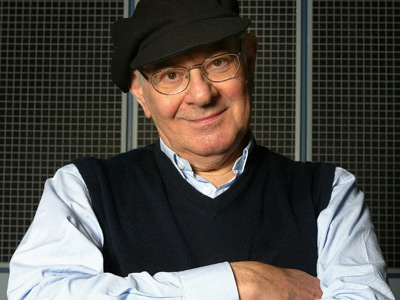
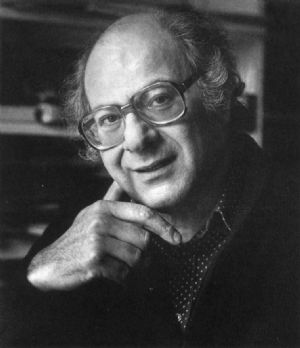 BD
BD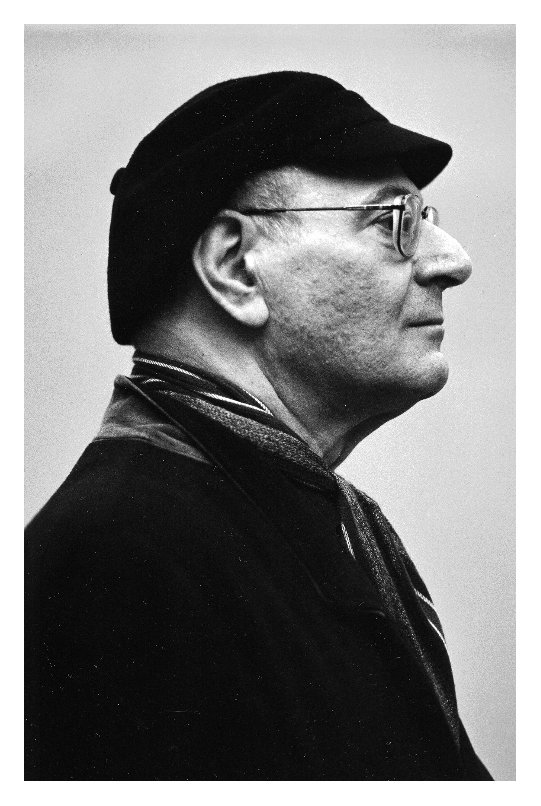 MK
MK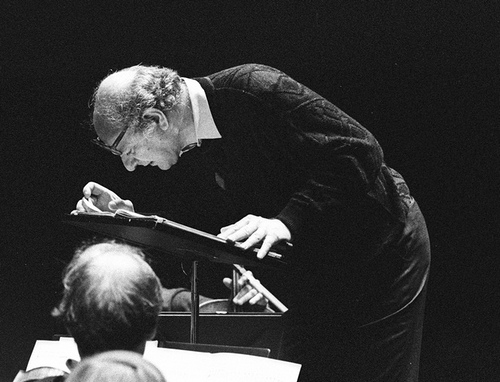 BD
BD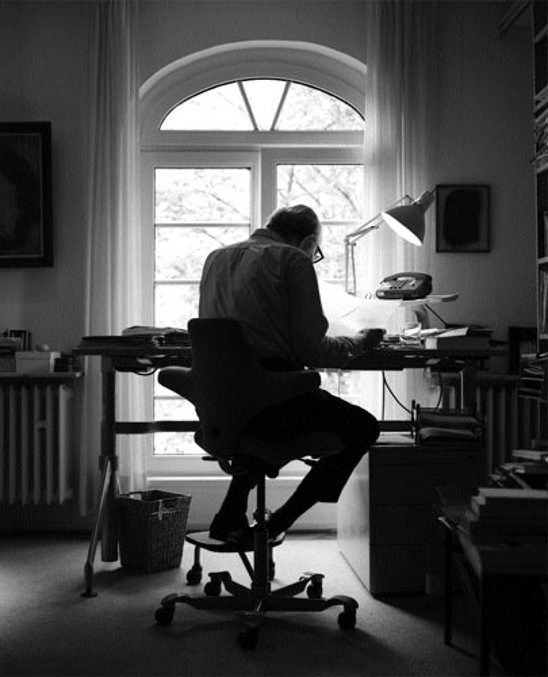 MK
MK MK
MK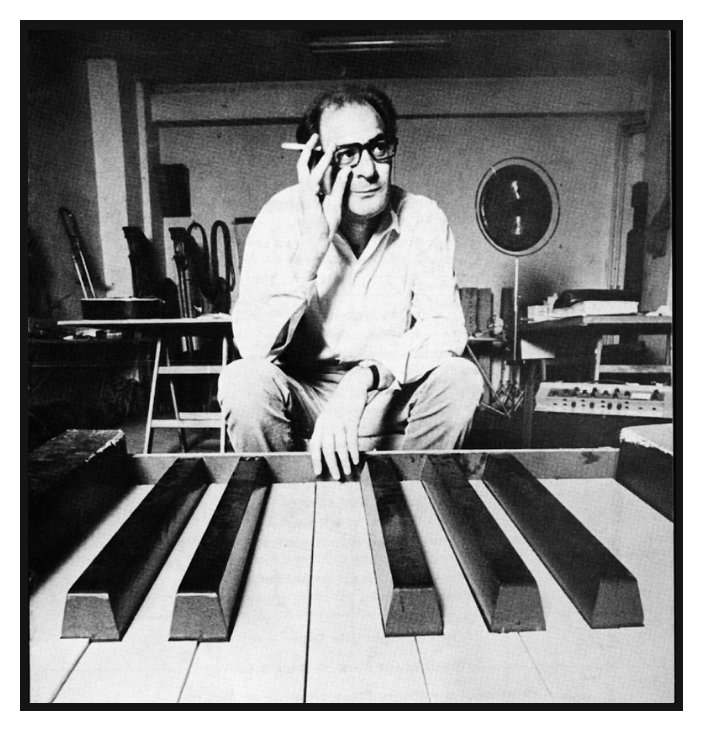 BD
BD